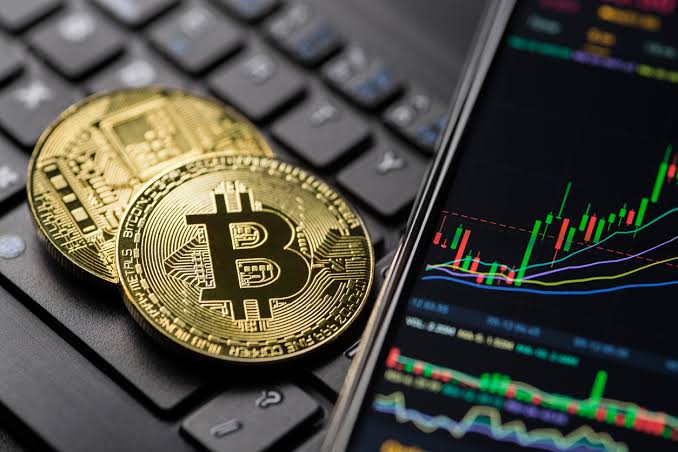
Cryptocurrencies: The Future of Money
Cryptocurrencies have emerged as a significant force in the financial landscape, prompting discussions about their potential to redefine money. The evolution of money has historically transitioned from barter systems to coins, paper currency, and now to digital forms, including cryptocurrencies like Bitcoin and Ethereum. This evolution raises questions about whether cryptocurrencies will replace traditional currencies or coexist alongside them.
General Understanding
Cryptocurrency is a digital or virtual currency that uses cryptography for security. Unlike traditional currencies governments issue, cryptocurrencies operate on decentralised networks based on blockchain technology. This ensures transparency and prevents double-spending by recording all transactions across a network of computers. Transactions are verified by network nodes through cryptography and recorded in the blockchain.
The first cryptocurrency was created by an unknown person or group using the pseudonym Satoshi Nakamoto. Introduced in a 2008 white paper titled *Bitcoin: A Peer-to-Peer Electronic Cash System*, it was launched in 2009. Cryptocurrencies are governed by consensus algorithms and user agreement, not by any single entity. For example, Bitcoin operates on a proof-of-work mechanism where miners validate transactions.
The pseudonymous nature of cryptocurrencies can facilitate fraudulent activities and tax evasion. However, blockchain’s transparency can also aid in tracking illicit transactions. Regulatory efforts aim to mitigate these risks through enhanced oversight and compliance measures.
The potential for cryptocurrencies to become the currency of the future is debated. Proponents argue they offer a more efficient, transparent, and inclusive financial system, while critics highlight volatility, regulatory uncertainty, and scalability challenges.
Control and Regulation
Cryptocurrencies are decentralised and not controlled by any central authority, making them resistant to censorship and centralised control. Government responses vary widely: some, like Japan and Switzerland, have embraced them with favourable regulations, while others, like China, have implemented stringent restrictions. The regulatory landscape continues to evolve as governments strive to balance innovation with consumer protection.
Regulations differ by country, focusing on anti-money laundering (AML), combating the financing of terrorism (CFT), and consumer protection. Entities involved in cryptocurrency transactions often need to comply with Know Your Customer (KYC) requirements. Cryptocurrencies bypass traditional banking intermediaries, enabling peer-to-peer transactions, and pose a challenge to conventional banking systems that rely on centralised control and intermediaries.
The pseudonymous nature of cryptocurrencies can facilitate fraudulent activities and tax evasion. However, blockchain’s transparency can also aid in tracking illicit transactions. Regulatory efforts aim to mitigate these risks through enhanced oversight and compliance measures.
The rapid rise of cryptocurrencies has introduced several challenges for governments and financial institutions. Volatility is a major concern, as the prices of cryptocurrencies can fluctuate dramatically, leading to significant financial risks for investors. Additionally, the association of cryptocurrencies with illegal activities and scams has raised alarms among regulators. The collapse of major exchanges, such as FTX, highlighted the potential for massive financial losses and has led to calls for stricter regulations.
The FTX Collapse: A Detailed Examination of the Scandal
Background of FTX
FTX, founded in 2019 by Sam Bankman-Fried and Gary Wang, rapidly became a major cryptocurrency exchange. Bankman-Fried’s experience at Jane Street and his creation of Alameda Research positioned him as a key figure in the crypto space. FTX gained prominence through innovative trading features and aggressive marketing, including endorsements by celebrities and partnerships with sports teams like the Miami Heat. By the end of 2021, FTX was valued at around $32 billion following a funding round led by SoftBank and other investors.
The Role of Alameda Research and FTT
Alameda Research, co-founded by Bankman-Fried, played a vital role in FTX’s operations, providing liquidity and engaging in arbitrage trading. However, Alameda’s balance sheet was heavily composed of FTX’s native token, FTT, which led to several issues:
- Interdependency: The close relationship between FTX and Alameda created a lack of transparency and financial instability. A decline in FTT’s value adversely affected both entities.
- Value Manipulation: Alameda’s large FTT holdings allowed potential manipulation of the token’s price, inflating asset values and misleading investors.
- Liquidity Risks: Using FTT as collateral introduced liquidity risks, exacerbating the crisis if market conditions worsened.
This setup created an illusion of stability, attracting more investors to FTX. However, when FTX faced liquidity issues, FTT’s value collapsed, worsening the crisis.
The Downfall Begins
Trouble emerged in November 2022 when a CoinDesk article revealed that Alameda’s balance sheet was largely FTT-based. This revelation led to a loss of investor confidence, prompting Binance to announce it would liquidate its FTT holdings. As Binance sold off FTT tokens, FTX’s market price dropped, leading to a liquidity crisis. Customers rushed to withdraw funds, but FTX was unable to meet these demands due to insufficient assets. On 11 November 2022, FTX filed for bankruptcy, revealing an $8 billion shortfall in customer funds.
Investigations and Regulatory Scrutiny
Following the bankruptcy, investigations by the U.S. Securities and Exchange Commission (SEC) and the Commodity Futures Trading Commission (CFTC) focused on potential fraud and mismanagement at FTX. Allegations included misuse of customer deposits for risky trading at Alameda. The FBI investigated potential illegal activities such as wire fraud and money laundering. Bankman-Fried was arrested in December 2022 and faced multiple charges, including conspiracy to commit fraud and money laundering.
Financial Impact and Losses
FTX’s collapse had widespread effects, with estimated losses reaching $8 billion and impacting hundreds of thousands of investors. Major crypto firms like BlockFi and Voyager Digital also suffered significant losses due to their exposure to FTX. The fallout led to a sharp decline in cryptocurrency prices, diminished investor confidence, and calls for stricter regulation. Many investors were left with worthless holdings as FTT’s value fell from around $84 in September 2021 to mere pence.
Lessons Learned
The FTX scandal highlights the need for transparency, regulation, and responsible management in the cryptocurrency space. It underscores the risks of significant interdependencies between entities like FTX and Alameda and continues to influence discussions on regulatory frameworks, investor protection, and the future of cryptocurrency markets. Bankman-Fried awaits trial, while the cryptocurrency landscape grapples with the aftermath of one of the largest financial scandals in recent history.
Economic Implications
Bitcoin has experienced significant volatility but has also shown resilience. Its value is influenced by market demand, regulatory changes, and technological advancements. Predicting its future value remains challenging, with key factors including regulatory changes, technological advancements, market adoption, scalability solutions, and the emergence of central bank digital currencies (CBDCs).
Security and Technology
Cryptocurrencies face technological and security challenges, including scalability, interoperability, and vulnerability to cyberattacks. Innovations such as layer 2 solutions and advanced encryption techniques aim to address these issues. Decentralised systems use consensus algorithms (e.g., proof of work, proof of stake) to validate transactions, distribute control among network participants, and enhance security and transparency.
Cryptocurrencies employ robust cryptographic techniques to secure transactions, including multi-signature wallets, hardware wallets, and decentralised exchanges. Continuous advancements in cybersecurity practices are crucial to safeguarding digital assets.
Imagine you have a digital wallet that stores cryptocurrency. To secure it, you use several measures:
- Multi-Signature Wallets: This is like a safe that requires multiple keys to open. For example, you and two friends each hold a key. To access the wallet or make a transaction, all three keys are needed. Even if one key is stolen, the wallet remains secure.
- Hardware Wallets: This is a physical device, like a USB drive, that securely stores your cryptocurrency. It must be plugged into your computer to access the funds, protecting your assets even if your computer is hacked.
- Decentralised Exchanges: This is a marketplace where buyers and sellers trade directly, without a central authority. It reduces the risk of fraud compared to traditional exchanges.
- Advanced Encryption Techniques: Every transaction uses complex encryption to ensure only you can authorise it. This prevents unauthorised access even if someone intercepts the transaction.
By combining these security measures, you effectively protect your cryptocurrency from theft and cyberattacks.
Market Dynamics
Investing in cryptocurrencies involves risks such as volatility, regulatory uncertainty, and technological vulnerabilities. Investors should conduct thorough research, understand market dynamics, and consider diversifying their portfolios to mitigate risks. Cryptocurrencies are known for their price volatility, driven by factors such as market sentiment, regulatory news, and technological developments. This volatility can lead to significant gains or losses, underscoring the need for informed investment strategies.
Cryptocurrencies offer a cost-effective and fast alternative for cross-border remittances, reducing transaction fees and processing times, and benefiting individuals in countries with limited access to traditional banking services.
One of the most ambitious initiatives proposed by Bukele is Bitcoin City, envisioned as a tax-free zone aimed at fostering cryptocurrency innovation. The feasibility and funding of such projects are crucial for understanding Bukele’s long-term vision for Bitcoin and its role in El Salvador’s economy.
Future Considerations
The rise of cryptocurrencies and digital payments could reduce reliance on physical money. However, the complete replacement of traditional money is unlikely in the near term, as both forms of currency coexist and serve different needs. Cryptocurrencies have the potential to reshape global financial systems by promoting financial inclusion, enhancing transparency, and reducing transaction costs. Their impact will depend on regulatory developments, technological advancements, and market adoption.
Benefits include increased financial inclusion, reduced transaction costs, and enhanced transparency. Drawbacks encompass regulatory challenges, volatility, and security concerns. Balancing these factors is essential for sustainable adoption.
Overview of Nayib Bukele’s Bitcoin Endorsement
Nayib Bukele, the President of El Salvador, has taken a bold stance on Bitcoin, making it “legal tender” in September 2021. This groundbreaking decision aimed to reshape the Salvadoran economy and attract foreign investment. However, it has also generated significant scepticism among the population, with initial polls indicating that over “75% of Salvadorans” were doubtful about the adoption of Bitcoin.
Economic Implications and Risks of Bitcoin
The International Monetary Fund (IMF) has indeed raised concerns regarding the potential “financial instability” and adverse effects on
the country’s economy due to Bitcoin’s volatility. These concerns are part of a broader discussion about financial stability risks highlighted in various reports, particularly regarding the implications of cryptocurrencies on monetary policy and fiscal integrity.
El Salvador’s Bukele administration has invested approximately $130 million in Bitcoin, which constitutes about 0.4% of the country’s GDP. As of August 2024, the country holds around 2,300 Bitcoins. Due to Bitcoin’s volatility, the value of these holdings has fluctuated significantly. As of early 2024, the estimated value of El Salvador’s Bitcoin holdings was less than £40 million, representing a substantial decrease from the initial investment.
One of the most ambitious initiatives proposed by Bukele is Bitcoin City, envisioned as a tax-free zone aimed at fostering cryptocurrency innovation. The feasibility and funding of such projects are crucial for understanding Bukele’s long-term vision for Bitcoin and its role in El Salvador’s economy.
While Bukele’s endorsement of Bitcoin has positioned El Salvador at the forefront of cryptocurrency adoption, the mixed reactions from the public and international financial institutions underscore the complexities and risks associated with this unprecedented economic experiment. The IMF has noted that while the risks associated with El Salvador’s embrace of Bitcoin “have not materialised,” there remains a need for transparency and careful management of these risks, particularly given the speculative nature of crypto markets.
One realistic example of how Bitcoin adoption could benefit El Salvador is through job creation in the technology and financial sectors. The development of Bitcoin City could attract international tech firms and blockchain developers, leading to increased employment opportunities in areas such as software development, cybersecurity, and financial services. This expansion could also boost local businesses offering digital payment and cryptocurrency-related services, further stimulating economic growth and creating new job opportunities for Salvadorans.
Conclusion
Cryptocurrencies represent a significant shift in the financial landscape, offering both opportunities and challenges. From their decentralised nature and regulatory concerns to their economic implications and security issues, understanding these digital assets is crucial for navigating their future. As cryptocurrencies continue to evolve, ongoing dialogue and investigation will shape their role in the global economy, potentially transforming how we perceive and utilise money.
Aric Jabari is a Research Fellow at the Sixteenth Council



